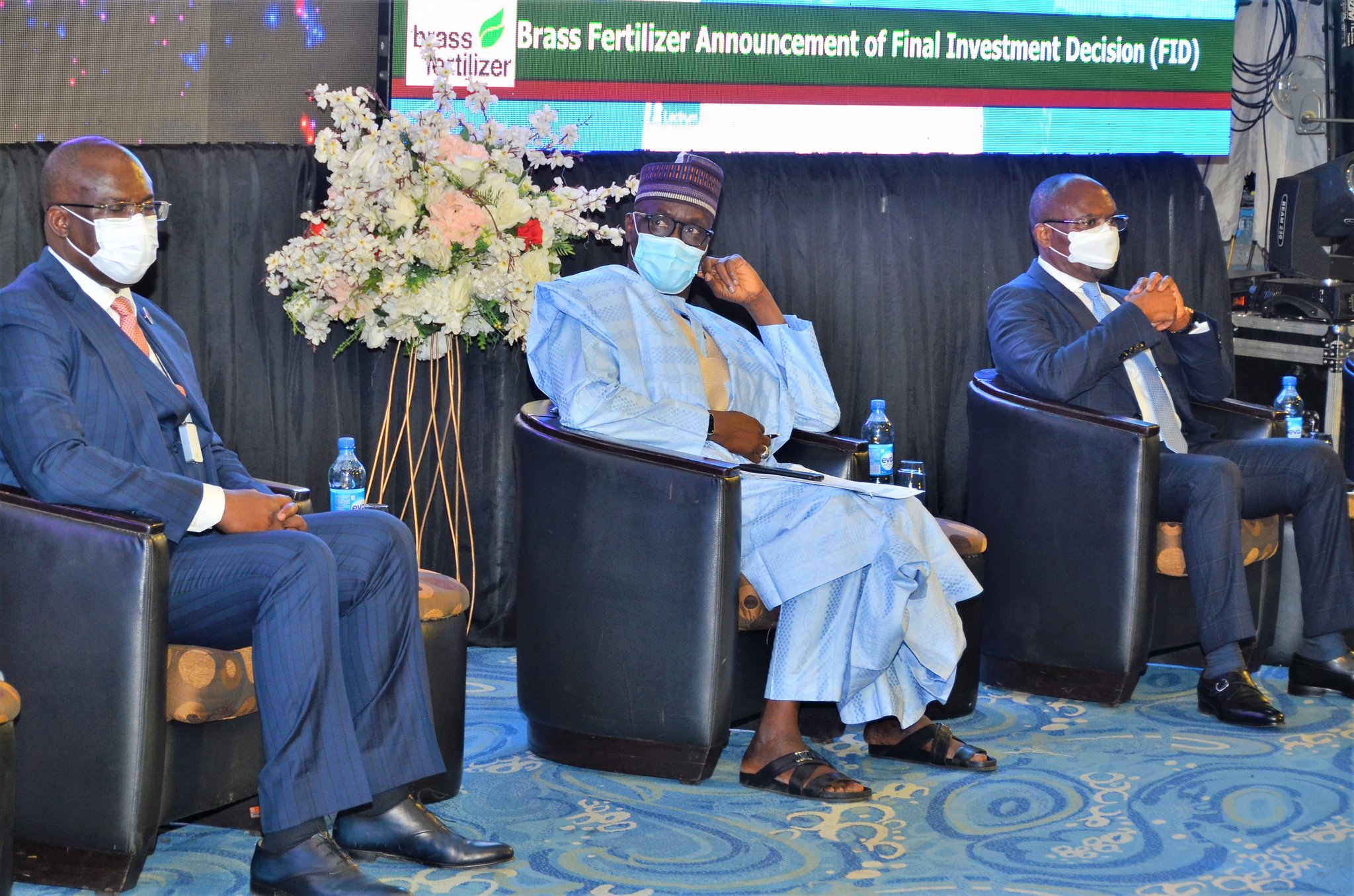The Nigerian National Petroleum Corporation (NNPC) says it would do everything within its powers to ensure the timeous completion of the $3.6bn Integrated Gas Processing and Methanol Plant in Odioma, Brass Island, Bayelsa State.
The Group Managing Director of NNPC, Mallam Mele Kyari, made the commitment at the signing of the Final Investment Decision (FID) on the project which held Friday at the Transcorp Hilton Hotel, Abuja.
A press release by the Group General Manager, Group Public Affairs Division, Dr. Kennie Obateru, stated that the facility is projected to be the largest methanol plant in Africa and the first in Nigeria.
The project is being executed by the Brass Fertilizer and Petrochemical Company Limited (BFPCL), an incorporated entity owned by the Nigerian National Petroleum Corporation (NNPC), DSV Engineering, and the Nigerian Content Development and Monitoring Board (NCDMB).
Speaking at the event, Mallam Kyari, said the Corporation would do everything possible to make the project come to fruition, noting that NNPC was pleased with the current efforts by the Federal Government to provide value for Nigeria’s gas resources.
Describing the FID as one of the most significant FIDs in recent times, Kyari said the project was in tandem with the earlier declaration of 2020 as the year of gas and 2021-2030 as the decade of gas by the Minister of State for Petroleum Resources.
He remarked that the construction phase of the project would create about 30,000 in addition to the 5,000 permanent jobs which would come in place when the plant becomes operational.
Earlier in his welcome address, the BFPCL Board Chairman, who is also the NNPC Chief Operating Officer, Gas & Power, Engr. Usman Yusuf, disclosed that already a lump sum Turnkey Engineering, Procurement and Construction (EPC) contract has been awarded to the China Tianchen Engineering Corporation (TCC) while TATA Consulting Engineers are providing project management consultancy for the delivery of the plant in 2024.
“In 2017, BFPCL secured an Initialled Gas Sales and Purchase Agreement (GSPA) with SPDC JV for a 25-year supply of 270MMscf/d rich gas to the project. The integrated project is estimated to cost about USD3.6 billion and is expected to deliver 10,000TPD Methanol products to the export and local markets,” he stated.
In his presentation, the Executive Vice-Chairman of BFPCL, Mr. Ben Okoye, said the signing of the FID was an affirmative vote and consent by the Board to construct the plant.
He explained that with a production capacity of 10,000 tons per day (tpd), the facility would be the largest methanol plant in Africa with a huge potential to provide gainful employment many youths both at the construction and operational stages.
Okoye informed that based on lessons learnt from the historic checkered relationships between host communities and oil and gas companies, the project would allow for host communities to have equity shareholding participation to give them a sense of belonging.
Speaking at the event, the Minister of State Petroleum Resources and Alternate Chairman of the NNPC Board, Chief Timipre Sylva, said the FID marked yet another milestone in the ongoing efforts to monetize and add value to the nation’s abundant natural gas endowments.
He noted that in July 2020, President Muhammadu Buhari approved the development of the Brass Gas Hub with the sole aim of aggregating and monetizing all stranded gas in the Brass area which amounts to over 14 trillion cubic feet.
“Today we are witnessing the signing of the Final Investment Decision of Phase 1 of the Brass Gas Hub by the promoters of this laudable project.
“The project is expected to have very significant economic impact on the country including but not limited to support for gas based industries, revenue generation, import substitution for the methanol needs of the country that is currently 100 per cent imported, among others’’ the Minister said.
While assuring the BFPCL of government support, he called on the company to ensure timeous completion of the project.



